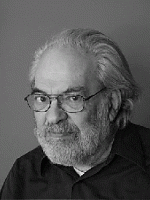 A wise song says that given certain conditions you can “call me Al.” That should be an aspiration for any teacher who reads and tries to understand hard texts with a group of students. I say this because the master of reading texts is named Al, Professor Alfred Geier, and because I aspire to be called Al!
A wise song says that given certain conditions you can “call me Al.” That should be an aspiration for any teacher who reads and tries to understand hard texts with a group of students. I say this because the master of reading texts is named Al, Professor Alfred Geier, and because I aspire to be called Al!
In fact, the highest honor our high school or college graduates can win is to enter an order named after Al.
The good news is that anybody can be called “Al,” because we can all be those who care more about learning than credentials, real scholarship more than meaningless publications. We can follow the Logos wherever it leads without any preconditions, compromises, or fears. We are not teachers if we design our courses around tests, reviews, or preconceived ideas.
I have watched this man teach for thirty years and I have observed three things that guide me every week.
We can be called Al if we think every discussion might show us something new.
I was a graduate student who knew nothing really about Plato and Al Geier decided to read Plato with a small group and invited me. I have the notes. Nothing, nothing, nothing I said was worth hearing, but Al heard all of it and pushed, prodded, listened, and managed to learn from me.
God help me, but Al managed to let me learn with him even though he still knows more Plato than any man now living.
Somehow every time we have met to read, even when he got a bit ill, we have learned. We read Cratylus and I learned.
I never forget what Al did and so every year when freshmen come to the college program at Saint Constantine, I learn. How could I not learn? The text is there as always and the students are new. I have never read this book with these people and so every discussion is different. God help me, I have never been bored in class since I aspired to be Al.
We can be called Al if we are patient with every student and every comment.
I once spent a weekend with Al when a stubborn student decided to dominate the discussion. Since a weekend with Al was a precious gift, this was frustrating. I wanted to go forward, but Al insisted on honoring the comments of that student. We argued, we learned, we saw new things. My haste would have destroyed the dialectic. Al was patient with this member of our community, so we saw good things. God help me to be so patient.
 A bad teacher assumes that he or she hears what the student is thinking or saying. A true Al will wait, listen, ask some questions and see.
A bad teacher assumes that he or she hears what the student is thinking or saying. A true Al will wait, listen, ask some questions and see.
We can be called Al if we love a book so much we keep learning from the same book.
I have read Republic with Al over a two year period and then at the end of those two years was ready to start again. We have started again and we have learned new things. There is a mistake we make in our time when books are easy to write. Great books are worth reading many times, but because we can, we hasten to other books. We know nothing well, because we read everything once or twice at most.
An Al demands that you dive deeply into a few great books. Al Geier prevented me from ever dismissing a great book (the Bible, Republic, Koran) with a sneer, because any Al knows that a great book is beyond my ability. We read. We think.
If you are Al, or you are lucky enough to be called Al, then you want to be changed by discussion. Following the argument is no hobby, but life and death. If you are an Al, then you wish to see the truth at any cost. If you are wrong, then you do not mind saying so. If you are an Al, you would rather discuss a question than assert your opinions.











